[ad_1]
If you don’t have access to a full gym—squat rack, barbell, plates, and machines—you’ve got to get creative with at-home leg exercises.
You might not be able to build the kind of mass that, say, heavy squats and deadlifts create, but you can absolutely get some great conditioning and build muscle with at-home leg exercises.
For those reasons, it’s useful to make do with what you’ve got—even if it’s just free weights and a bench. What matters most is that you’re still training the lower body well, hard, and consistently. (That means at-home calf exercises, quad exercises, and glute exercises.)
Can I Build Leg Muscle Without Weights?
Despite popular belief, it’s not only heavy weights that spur major muscle growth.
Lifting relatively light weights (about 50 percent of your one-rep max for about 20 to 25 reps is just as efficient at building both strength and muscle size as lifting heavier weights (up to 90 percent of one-rep max) for eight to 12 reps, according to a study conducted at McMaster University in Ontario.
The secret to hypertrophy (building muscle) is to exhaust the muscles. You can do this by utilizing high reps of low weight (or simply bodyweight) and various training methods.
- Time under tension places your muscles under greater stress for longer durations of time to get better results in half the time.
- Eccentric isometrics emphasize the lowering phase of a move to focus on muscle lengthening, not contracting.
- And high-intensity finishers fully exhaust and stimulate your muscle fibers to create metabolic stress in muscle cells, causing them to swell.
Bottom line: Your body doesn’t know or care how you’re exhausting muscles. So long as you’re creating microtears in the tissue, your body will spring to repair those cells, spurring them to grow in size.
Why Is Leg Day Important?
Leg days are typically the most demanding for lifters—and also the most effective.
“Your legs are half of your body, and they’re made up of the largest muscle groups, which means you’ll burn more calories and get that metabolism burning for hours post-workout,” says Ethan Marine, CPT.
Because you’re hitting some of the biggest muscles in your body, these workouts generate the greatest hormonal response, sending your testosterone levels through the roof.
Do Leg Exercises Strengthen Knees?
When you experience knee pain, it’s often caused by muscle imbalances putting undue strain on the joints. Incorporating unilateral exercises can mitigate overuse and imbalances caused by sports like running. Mobility exercises can also increase range of motion to the surrounding muscles so you can move more robustly in different planes of motion (pivot, sprint, and jump).
Overall, exercises that target and build strength in your glutes, hamstrings, and quads will help create lower-body stability, while mobility can help relieve tension around the knee joint.
Try these home leg workouts on for size. We’ve incorporated a range of at-home leg exercises that only require bodyweight, as well as ones that utilize free weights, a TRX, weight bench, and Swiss ball.
15 Best Bodyweight At-Home Leg Exercises
If you’re looking for a workout that builds muscle and torches fat at the same time, look no further than these top bodyweight leg exercises. They target the fast- and slow-twitch muscle fibers of the glutes, quads, calves, hamstrings, hip stabilizers, and more.
Work them into your regular legs workout. Or, do them as a bodyweight conditioning circuit. If you choose to do the circuit, do 3 to 5 sets of 20 reps per exercise.
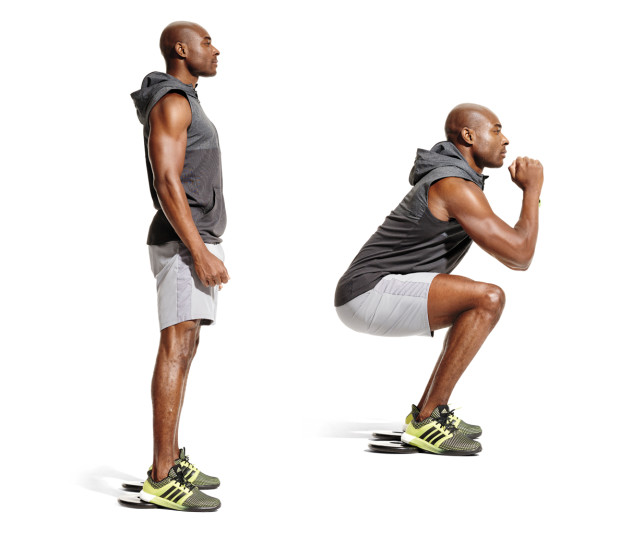
Why It Works
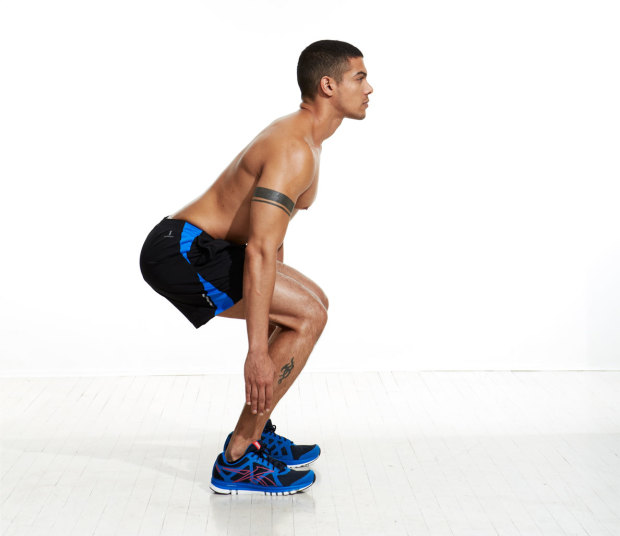
Why It Works
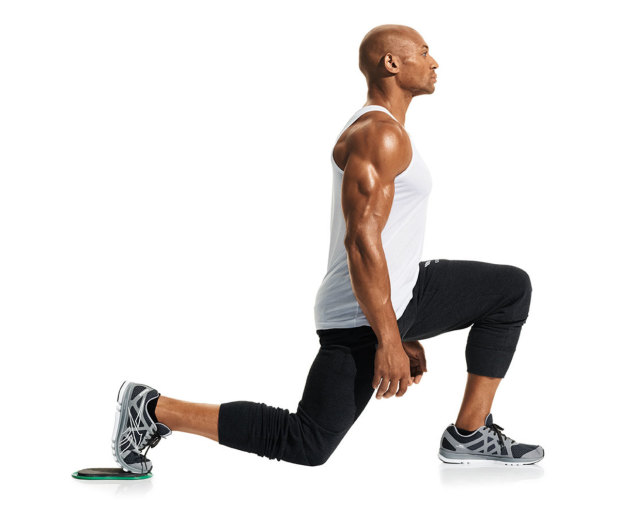
Why It Works
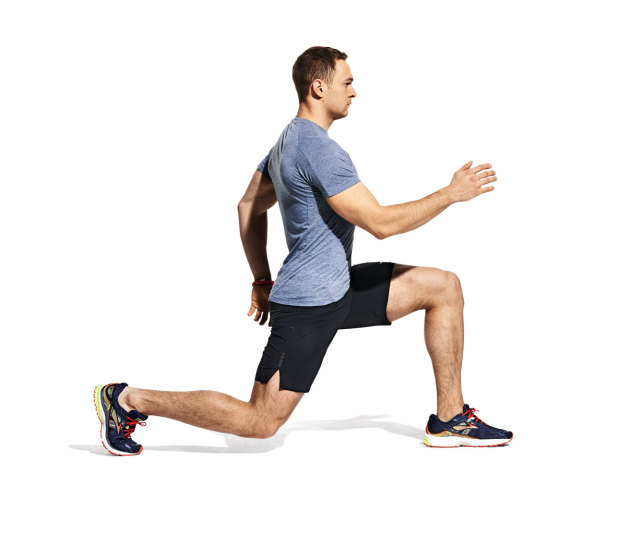
Why It Works
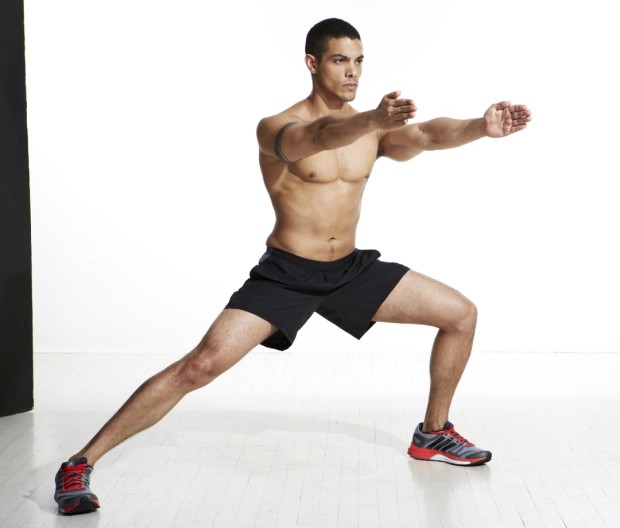
Beth Bischoff
Why It Works
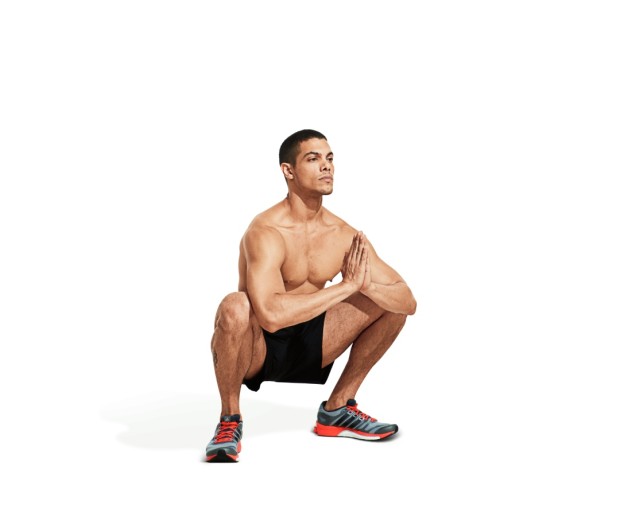
Beth Bischoff
Why It Works
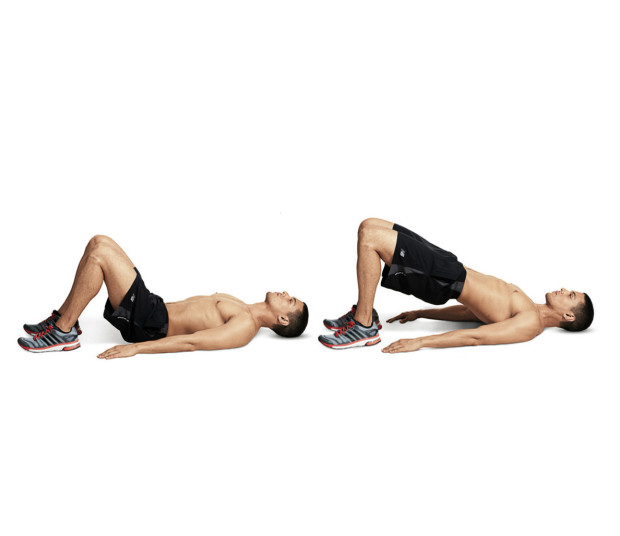
Why It Works
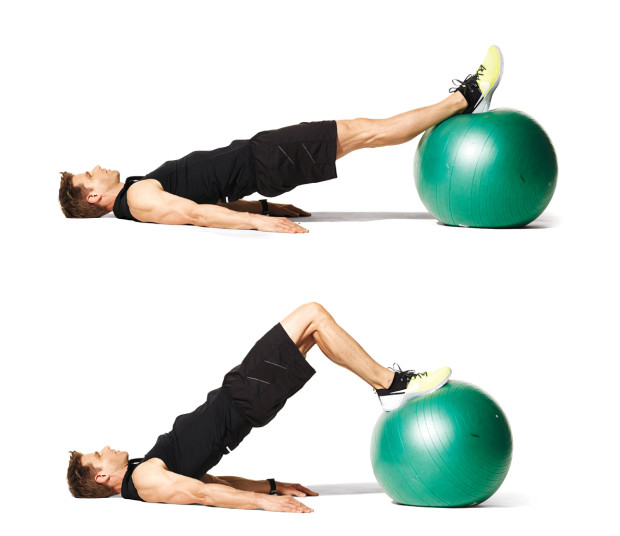
Why It Works
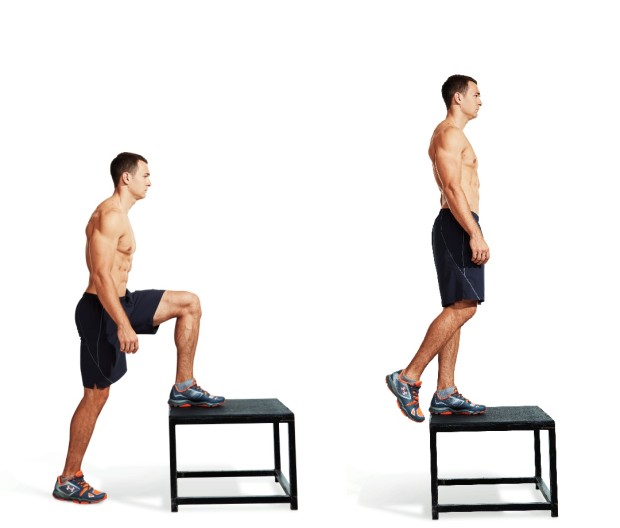
Beth Bischoff
Why It Works
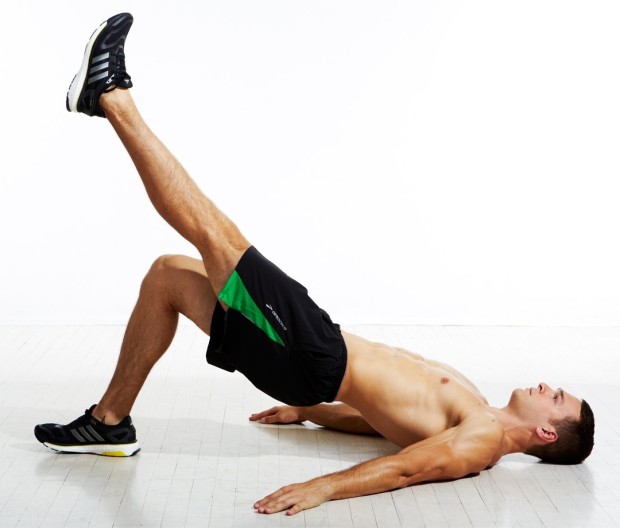
Why It Works
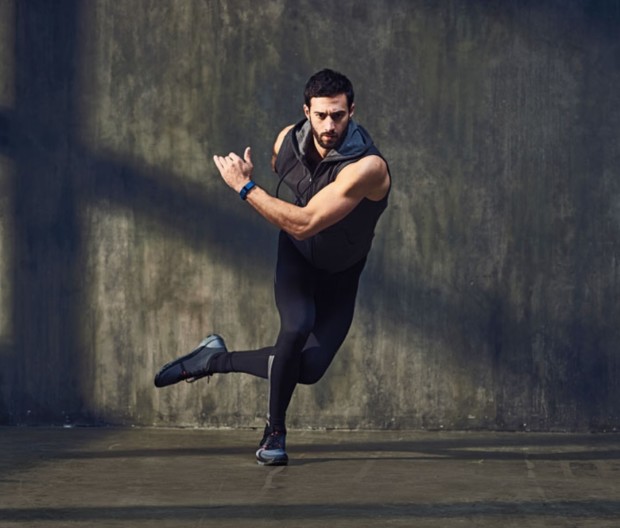
Why It Works
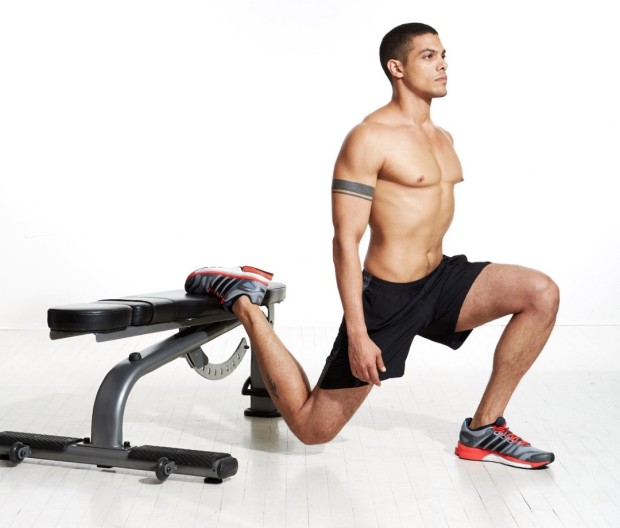
Why It Works
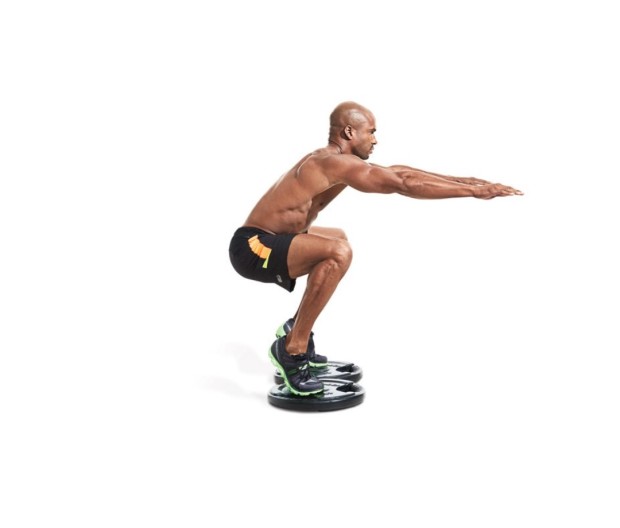
Why It Works
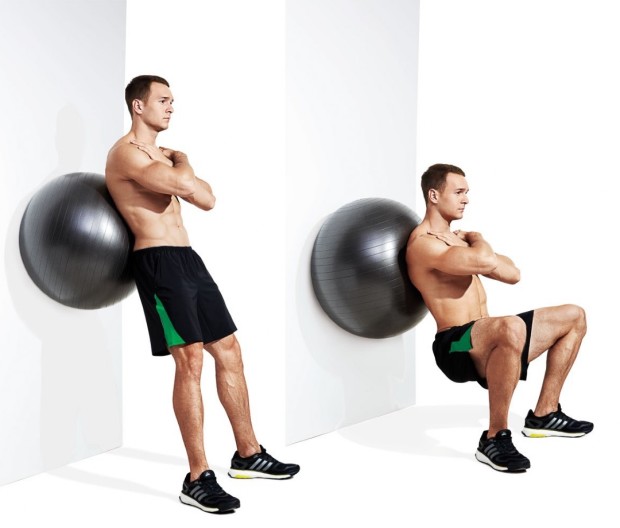
Why It Works
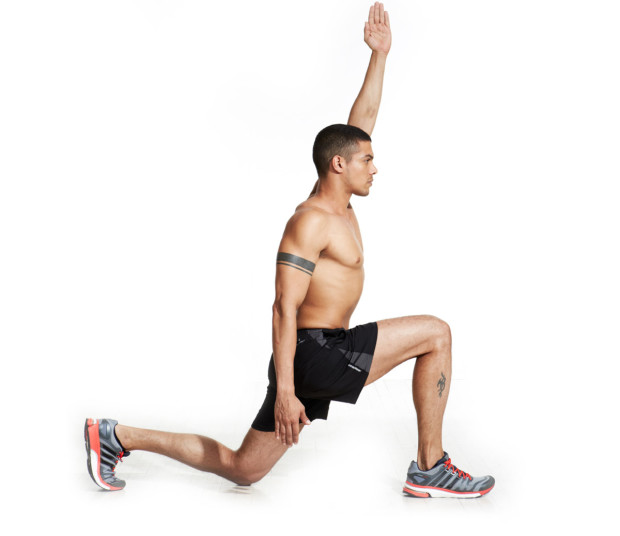
Beth Bischoff
Why It Works
Best Bodyweight Home Leg Workouts
Bodyweight Workout 1
Directions
Perform the exercise pairs (marked A and B) as alternating sets. So you’ll do a set of A, rest, then a set of B, rest again, and continue for all the prescribed sets.
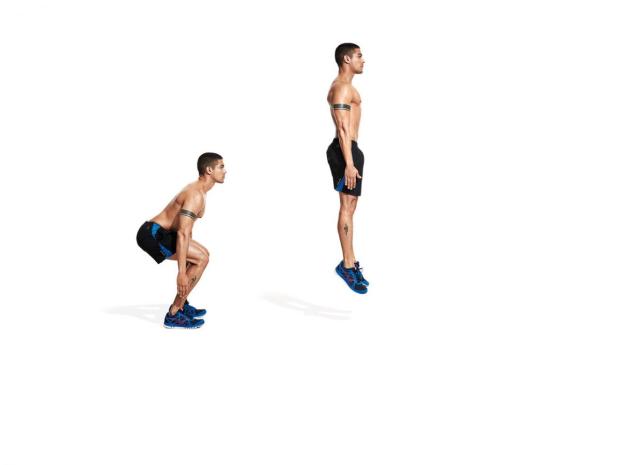
- Sets: 4
- Reps: 8
- Rest: 60 sec.
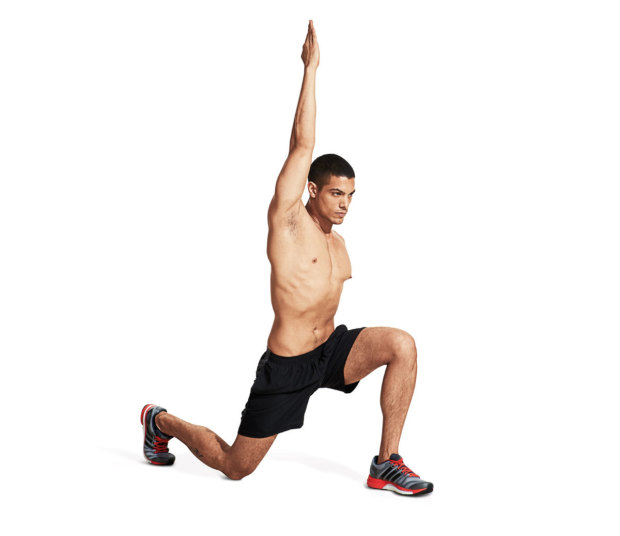
Beth Bischoff
- Sets: 3
- Reps: Hold for 30 sec. (each side)
- Rest: 30 sec.
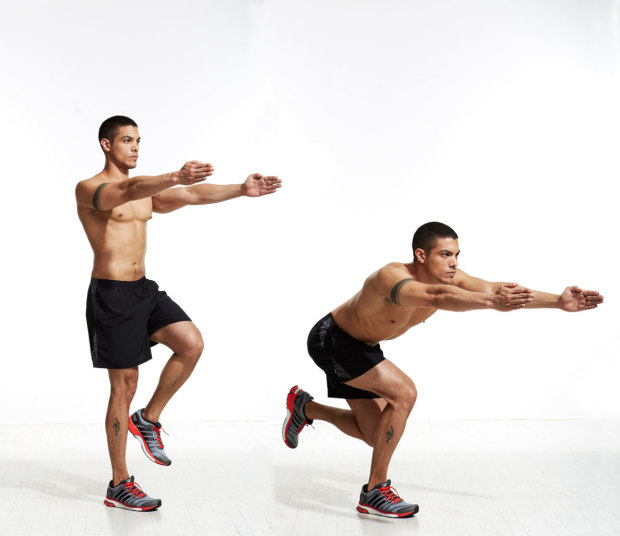
- Sets: 4
- Reps: 6 (each side)
- Rest: 60 sec.
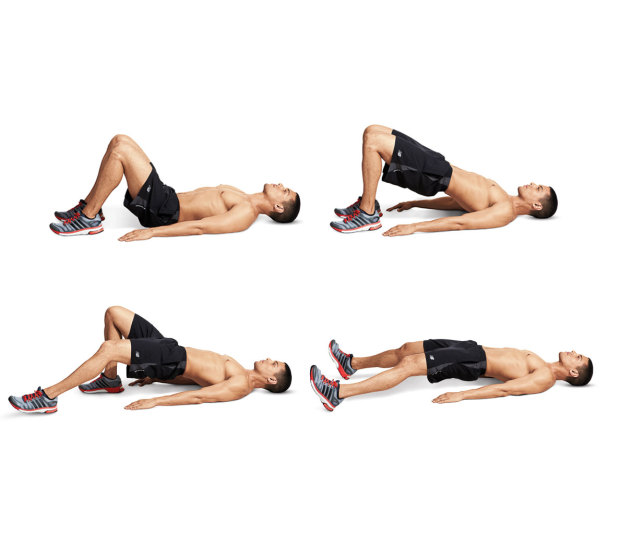
- Sets: 4
- Reps: 8
- Rest: 60 Sec.
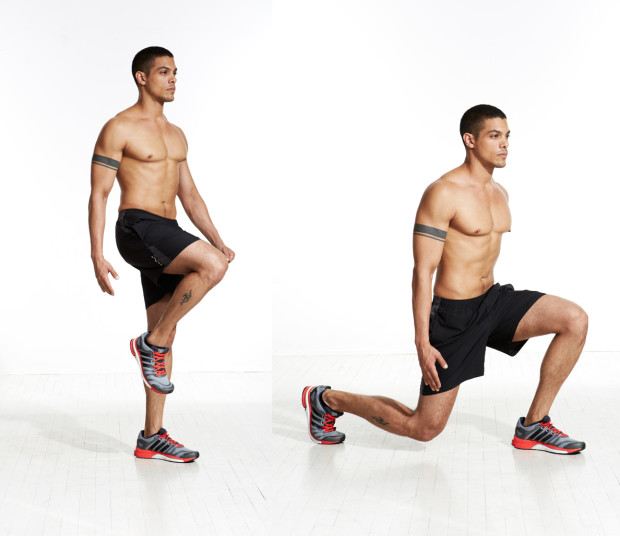
- Sets: 3
- Reps: 15 (each side)
- Rest: 60 sec.
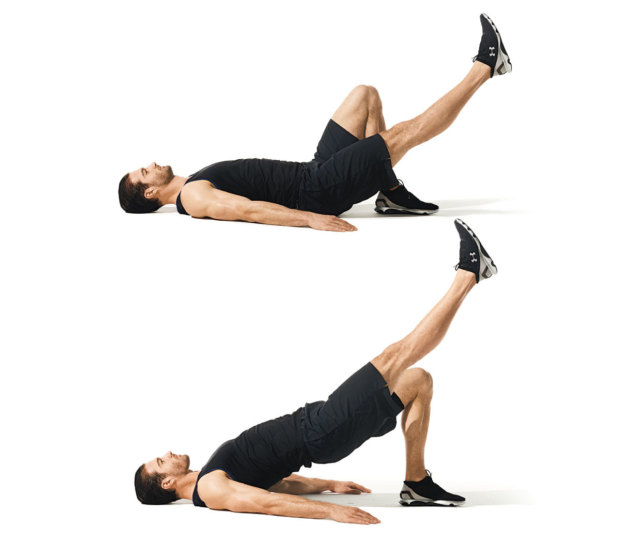
James Michelfelder
- Sets: 3
- Reps: 12 (each side)
- Rest: 60 sec.
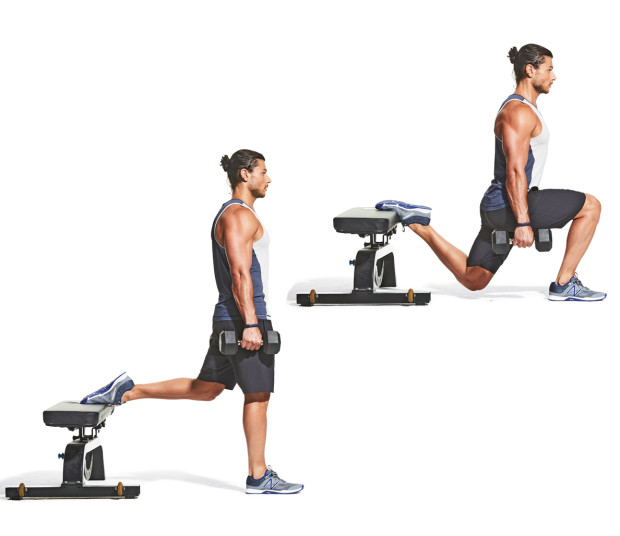
- Sets: 2
- Reps: Hold for 30–60 sec. (each side)
- Rest: 60 sec.
Bodyweight Workout 2
Directions
Perform straight sets 4 times through with 1 minute rest between sets.
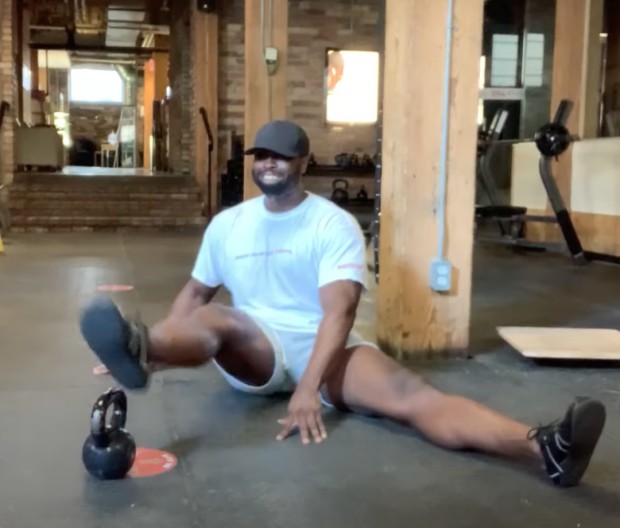
Courtesy of Lee Boyce
How to Do It
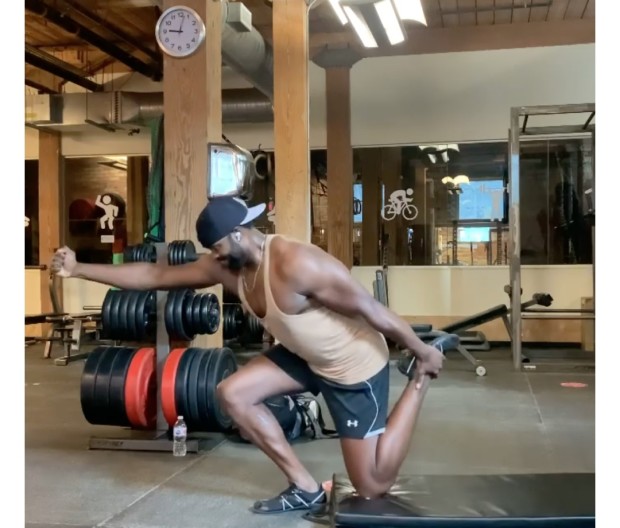
Courtesy of Lee Boyce
How to Do It
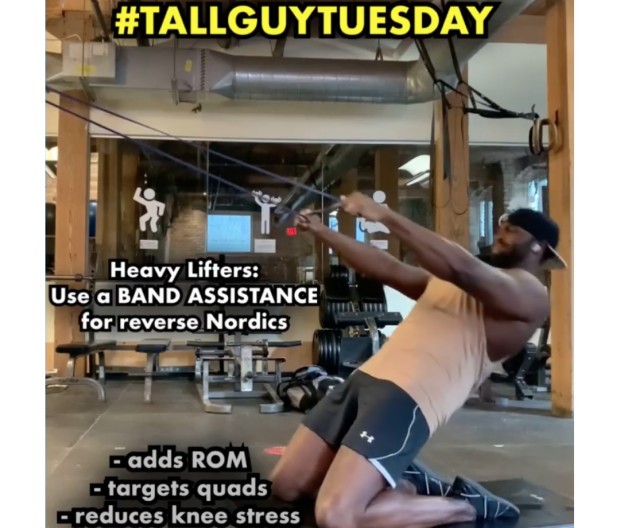
Courtesy of Lee Boyce
How to Do It
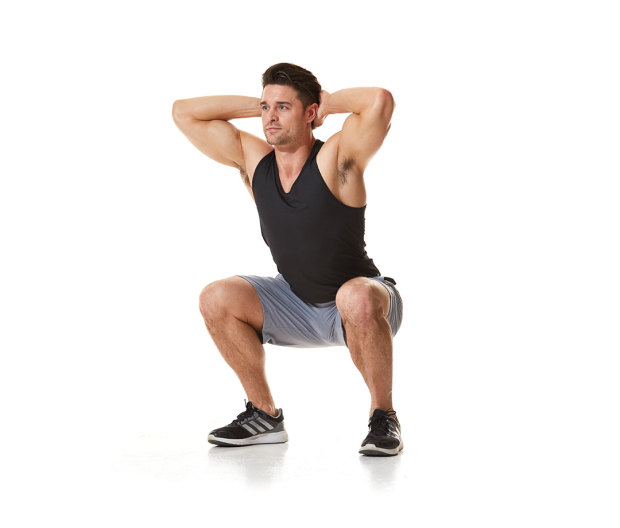
How to Do It
Best Weighted Leg Exercises and Workouts
Workout 1: German Body Comp
Equipment needed: A pair of light and heavy dumbbells, and one medium-tension resistance band.
Directions
Perform as many trisets as possible in 40 minutes (if you can complete 7, that’s a great indicator of your overall fitness).
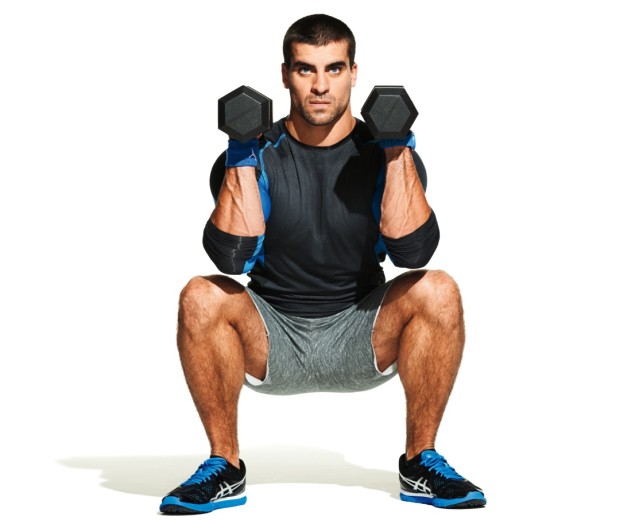
James Michelfelder
How to Do It
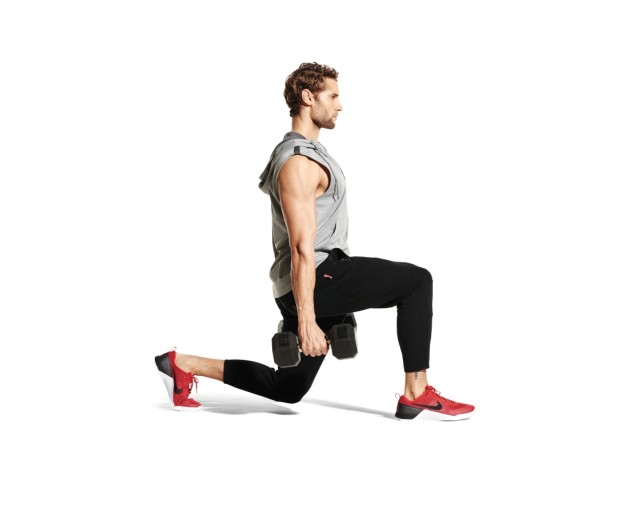
James Michelfelder
How to Do It
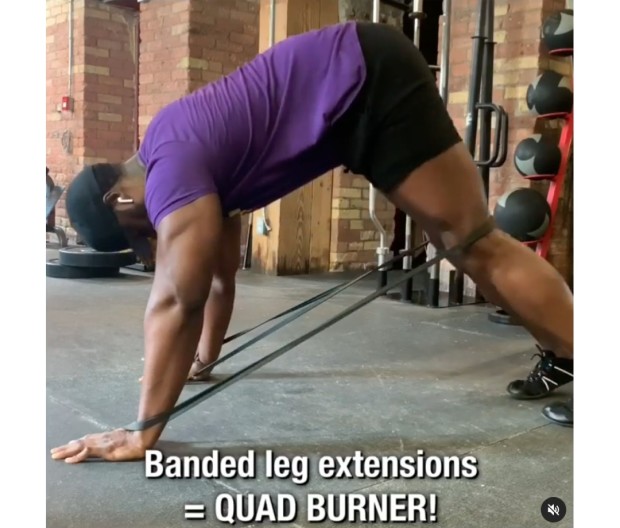
Courtesy of Lee Boyce
How to Do It
Workout 2: Posterior Chain Attack
Equipment needed: Heavy kettlebell, medium or heavy pair of dumbbells, and a workout bench.
Directions: This workout deals with supersets and compound sets to obliterate your posterior chain (glutes and hamstrings) in the best way. Perform the two supersets for 4 rounds, resting 1 minute between rounds but not between exercises. For the final exercise, rest 1 minute between sets.
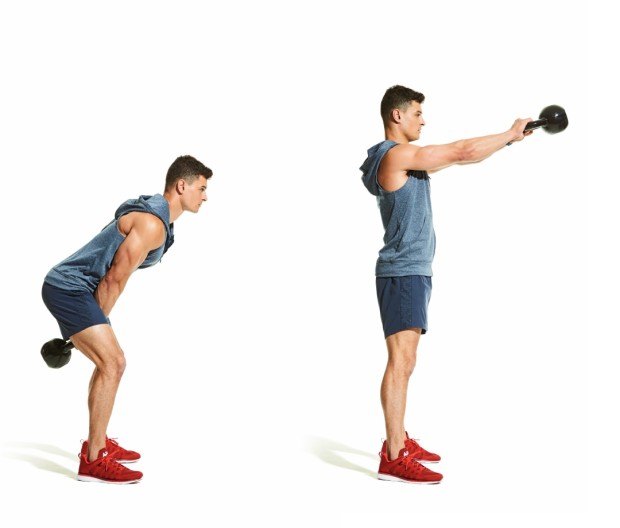
James Michelfelder
How to Do It

How to Do It
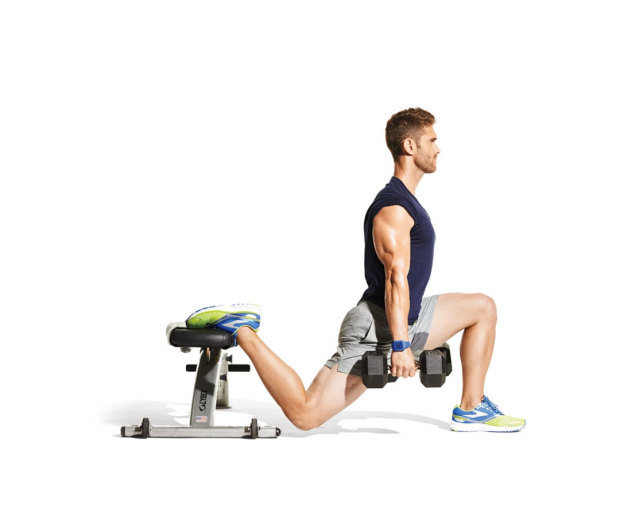
James Michelfelder
How to Do It
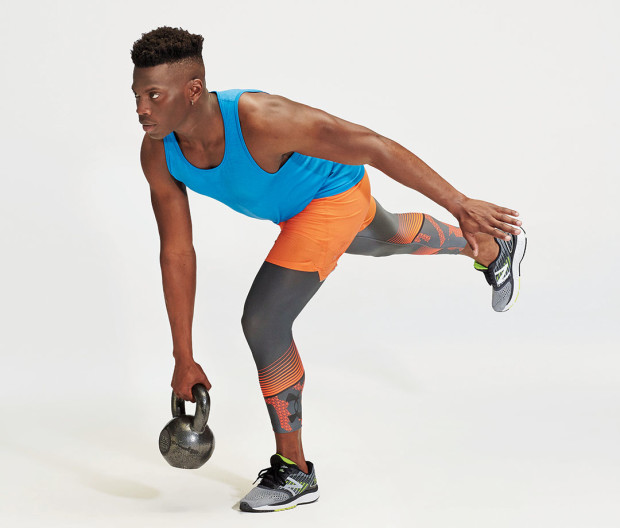
Justin Steele
How to Do It
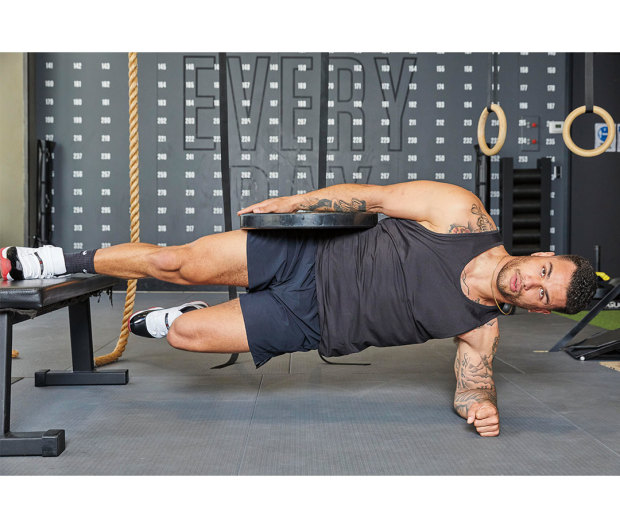
Marius Bugge
How to Do It
Workout 3: Mid-Range Madness
Equipment needed: Heavy kettlebell, Swiss ball, and a medium or heavy pair of dumbbells.
Directions: This workout takes advantage of partial ranges of motion to help ingrain technique and to give the lower body musculature twice the pump for each rep performed. Perform supersets for 4 rounds. Rest 90 seconds between rounds.
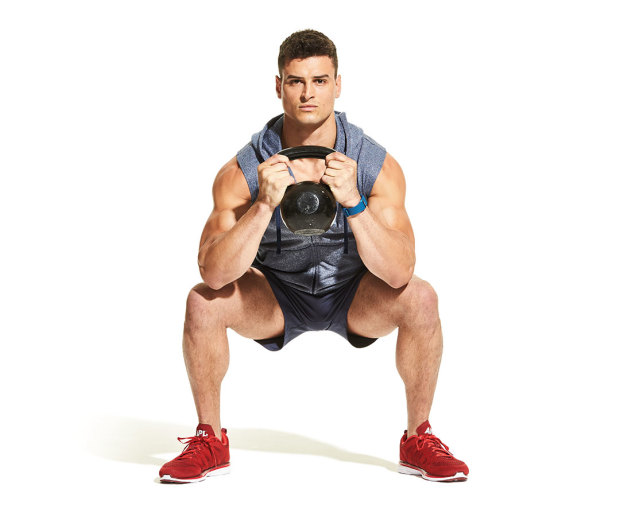
James Michelfelder
How to Do It

How to Do It
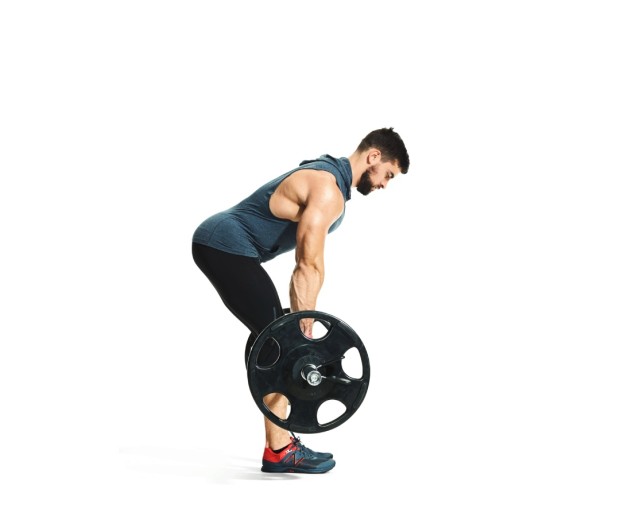
James Michelfelder
How to Do It

James Michelfelder
How to Do It
Workout 4: Contrast Training
Equipment needed: Heavy kettlebell and a pair of heavy dumbbells.
Directions: The goal of contrast training is to pair or group loaded movement patterns with similar patterns that are unloaded and explosive in nature. This will effectively train the fast-twitch muscle fibers and potentiate more power and strength. Perform as contrast superset and trisets for 5 rounds. Rest 90 seconds between rounds.
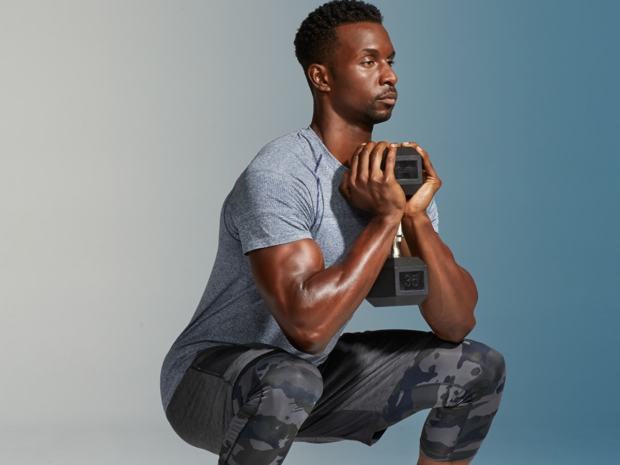
Justin Steele
How to Do It
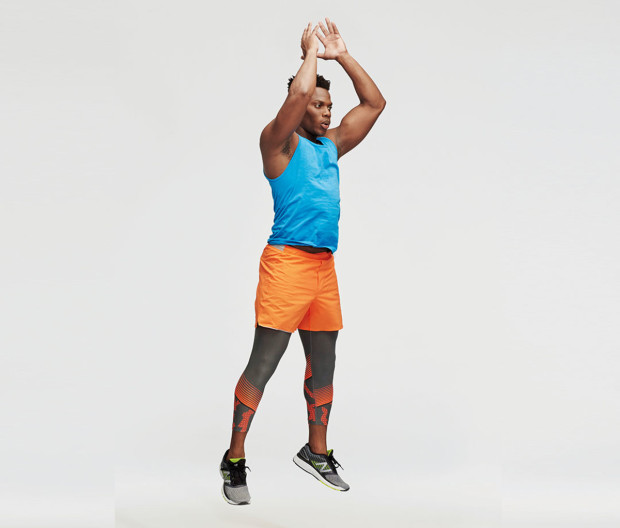
Justin Steele
How to Do It
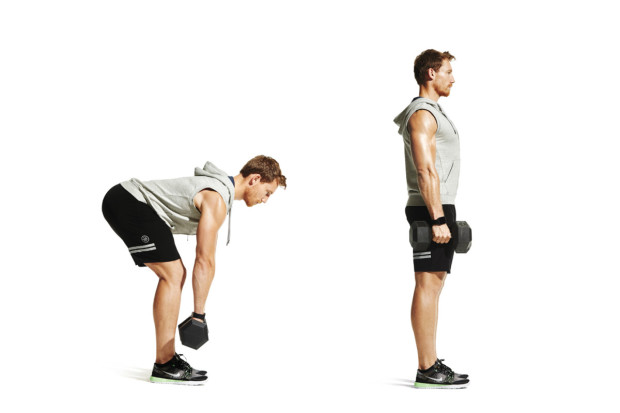
James Michelfelder
How to Do It
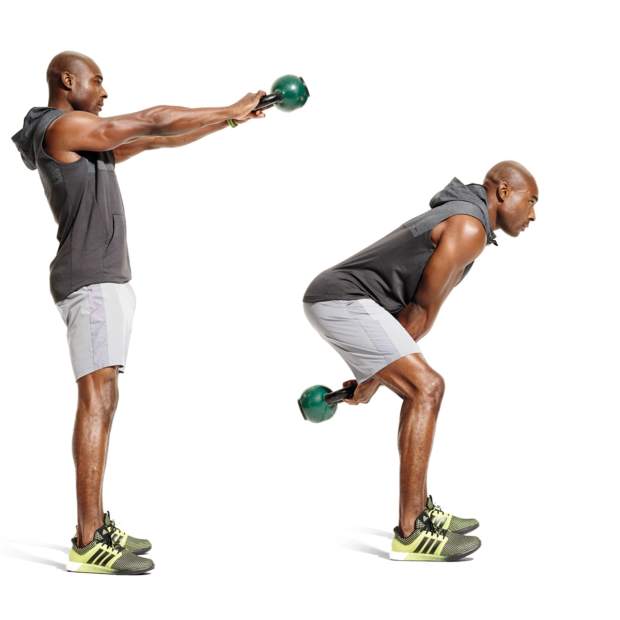
James Michelfelder
How to Do It
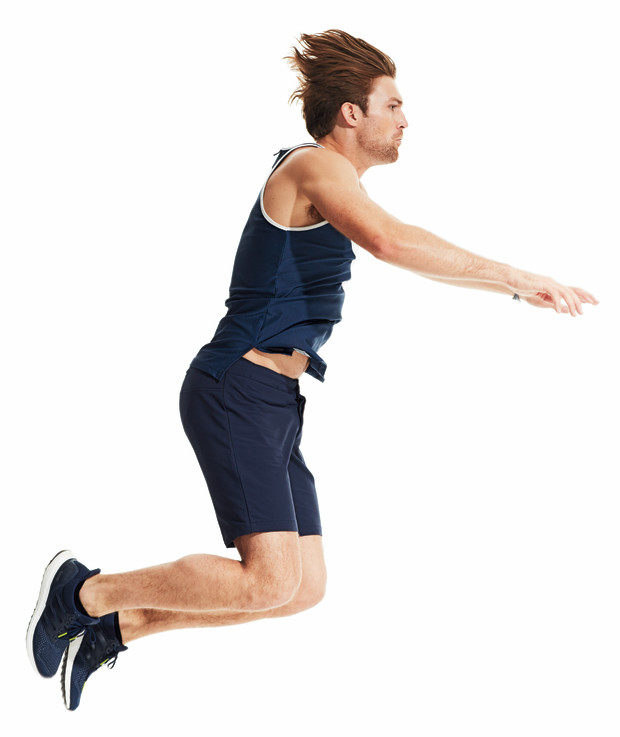
James Michelfelder
How to Do It
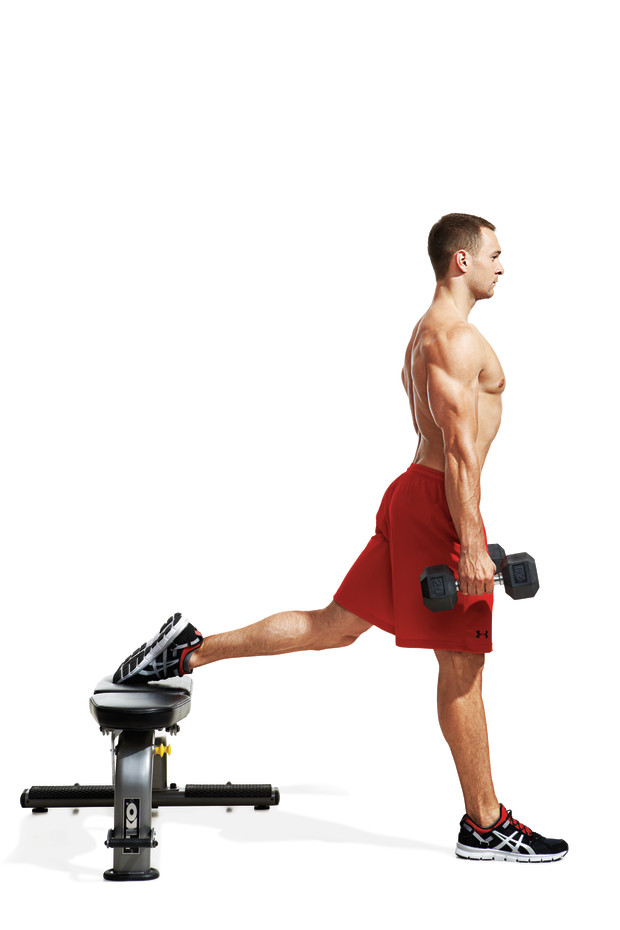
Beth Bischoff
How to Do It
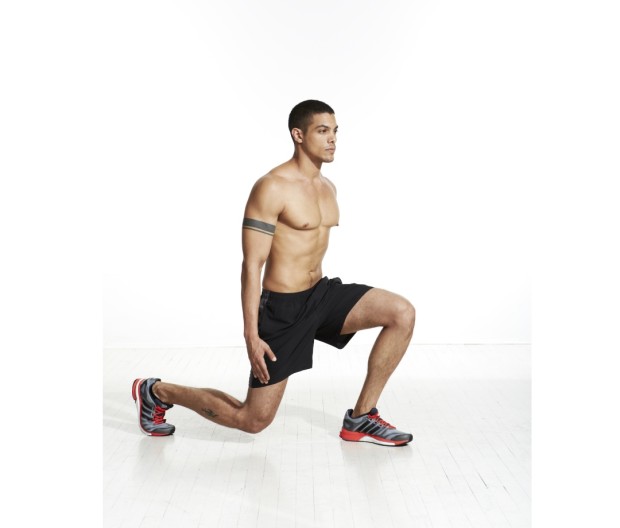
Beth Bischoff
How to Do It
Workout 5: TRX + Lateral Plane
Equipment needed: TRX or suspension trainer, medium dumbbells or kettlebells, and workout bench.
Directions: You’ll be exercising in the lateral plane, making use of side-to-side training rather than just forward and backward. You’ll complete supersets and straight sets in this routine. Follow work and rest periods as indicated for supersets.
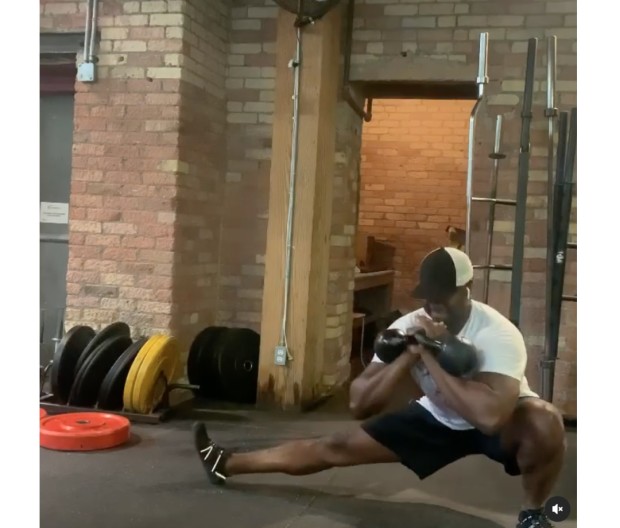
Courtesy of Lee Boyce
How to Do It
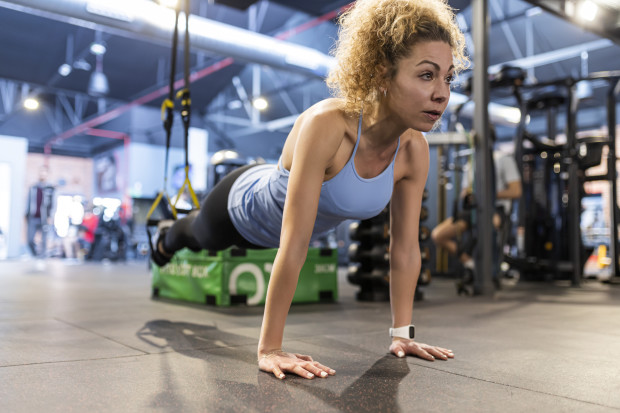
David Fuentes Prieto/Getty Images
How to Do It
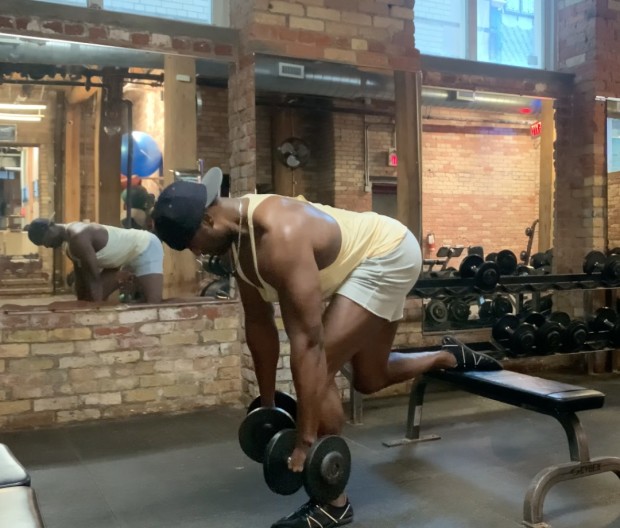
Courtesy of Lee Boyce
How to Do It
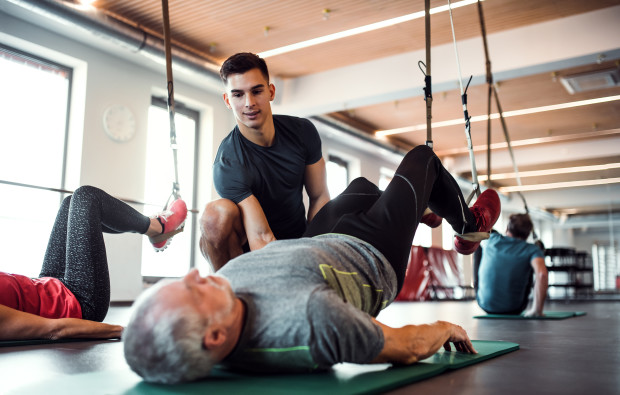
Getty Images
How to Do It
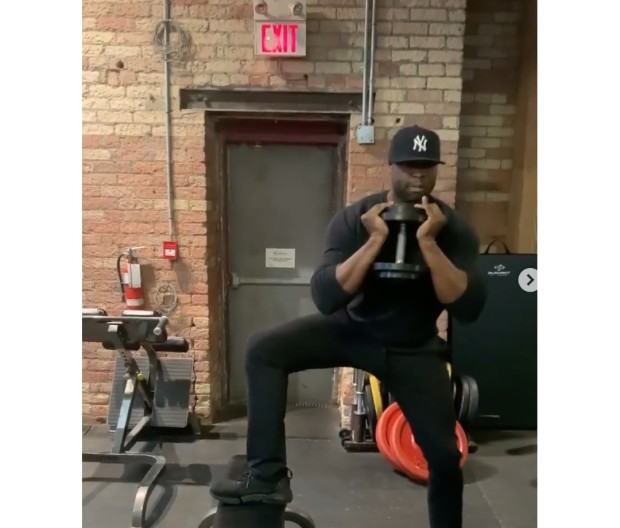
Courtesy of Lee Boyce
How to Do It
Workout 6: Nordic Triset
Equipment needed: none (weight plate or dumbbell optional)
Directions: This three-move beast of a superset requires nothing but bodyweight and a place to secure your feet. Clock out 30 minutes and rest as long as needed after each superset. See how many rounds you can crack out in 30 minutes.
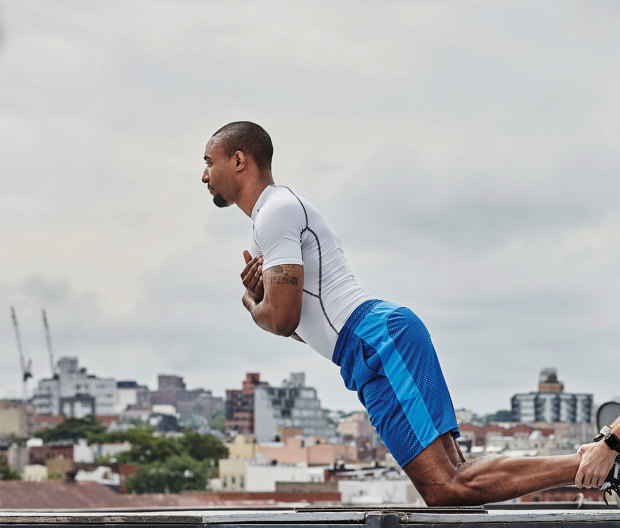
How to Do It
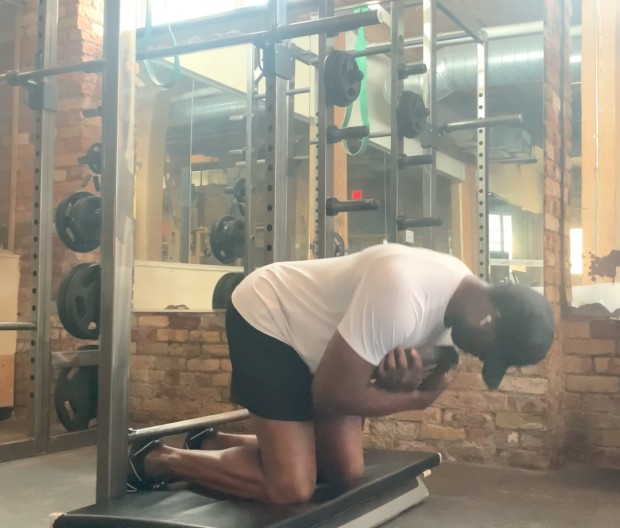
Courtesy of Lee Boyce
How to Do It
[ad_2]
Source link

Hi! I’m a dedicated health blogger sharing valuable insights, natural remedies, and the latest scientific breakthroughs to help readers lead healthier lives. With a holistic approach to wellness, I empower individuals with accessible and actionable content, debunking myths and offering practical tips for incorporating healthy habits.